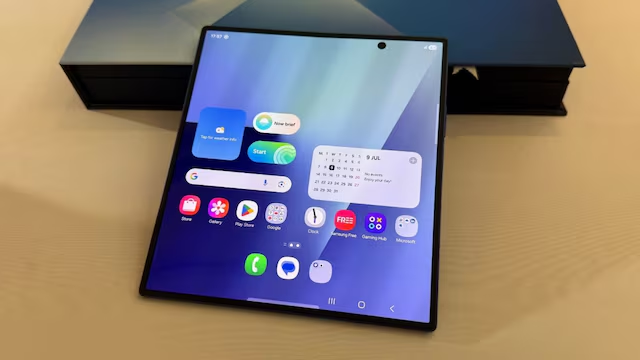Now Reading: Tea App Faces Major Data Breach: Viral Women-Only Platform Under Privacy Scanner
-
01
Tea App Faces Major Data Breach: Viral Women-Only Platform Under Privacy Scanner
Tea App Faces Major Data Breach: Viral Women-Only Platform Under Privacy Scanner

The women-only app ‘Tea’, which gained massive attention for letting users review and rate men anonymously, is now facing serious scrutiny after a major data breach. The platform, often described as a mix between a social app and a review board, reportedly exposed sensitive user data, raising concerns about digital safety, privacy, and the broader implications of gender-based online platforms.
The breach has sparked debate around the app’s model and its security preparedness.
What Exactly Is Tea?
Tea was launched as a platform “for women, by women,” allowing users to leave anonymous reviews about men they’ve dated, worked with, or interacted with socially. Meant to be a space for women to warn or support each other, the app quickly went viral, especially among Gen Z users in the US and parts of Europe.
While it never officially launched in India, its model and popularity were widely discussed on Indian social media. The idea struck a chord with many women who have long voiced the need for safer online spaces and honest peer-based feedback.
What Went Wrong?
The platform recently suffered a massive data breach where user details, including names, email IDs, and sensitive reviews, were reportedly leaked online. Though the company claimed to be working on strengthening its data infrastructure, the damage had already been done.
Cybersecurity experts flagged that the app lacked basic encryption safeguards and had rushed into scaling without addressing core backend vulnerabilities. For Indian users who often follow viral Western trends, this breach serves as a wake-up call about app safety.
India’s Growing Interest in “Review-Based” Social Apps
In Tier 2 cities like Jaipur, Surat, and Bhopal, more women are using niche platforms to share experiences—whether for workplaces, dating, or local businesses. Tea’s concept resonated with many in India who were watching from afar, especially in female-led WhatsApp and Instagram circles.
But the breach has highlighted that no matter how progressive or helpful an app’s purpose might be, weak data security can completely break user trust.
The Bigger Conversation
The Tea app controversy goes beyond one breach. It opens up a wider conversation on accountability, the ethics of anonymous reviews, and the risks of turning personal experiences into public ratings. While the idea of women warning each other about problematic men may come from a place of protection, the potential for misuse, defamation, or lack of verification also raises important legal and moral questions.
In India, where defamation laws and digital rights are still evolving, such models would face heavy legal scrutiny if ever replicated.
Conclusion
Tea’s fall from viral fame to a privacy cautionary tale shows just how fragile trust is in the digital world. The app may have started with a good intention, but without robust safeguards, even well-meaning platforms can backfire. For Indian users, especially in smaller cities exploring new-age social apps, the message is clear—don’t download blindly. Check for security, understand the model, and always value privacy over popularity.
























